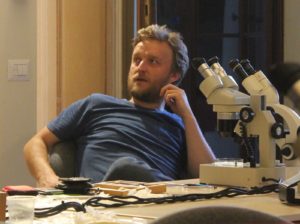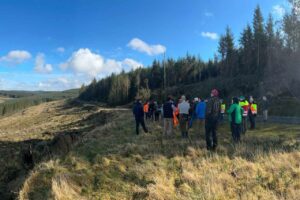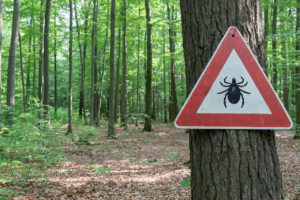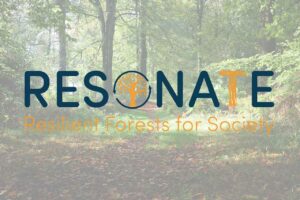The Arboricultural Association organised the All-Party Parliamentary Group on Horticulture and Gardening event on 18th July 2017 in Victoria Tower Gardens, London. The event focused on the need to invest in the Urban Forest and the need for skilled and professional individuals to be utilised by decision makers from a local to national level. Keith Sacre MICFor, Chairman of the Arboricultural Association, quantified the impact that a lack of investment and neglect for biosecurity will have on the Urban Forest. Associate member John Parker, Chair of the London Tree Officers Association, gave the keynote address on the role of Tree Officers and a need for investment in the management of the Urban Forest.
John Parker’s speech:
“My Lords, Ladies and gentlemen, good morning. Thank you for attending today, and many thanks to the Arboricultural Association, not only for organising this event but for giving me the opportunity to speak to such a distinguished audience. My name is John Parker, and I am one of the Arboriculture and Landscape Managers at Transport for London and Chair of the London Tree Officers Association, the LTOA. I am here today to represent the LTOA in particular but also, I hope, tree officers in general, and it is a privilege to be able to do so. Like many organisations the LTOA seeks to promote the benefits of trees and the urban forest. However, we specifically believe that it is local authority, public sector tree officers who are best-placed to manage public trees for the public benefit. I hope today to tell you about tree officers, what they do, why they are so important, the challenges they face and how you can help.
“Keith Sacre MICFor has already mentioned i-Tree and summarised some of the key ecosystem services that the urban forest delivers; the environmental, economic and social benefits provided by trees. The arboricultural industry has done some great work in promoting these services but there is an awful lot more to do. Which seems strange, really, as it should be an easy sell. Imagine someone were to invent an item of street furniture which improved air quality, reduced the costs associated with stormwater management, reduced crime, slowed traffic speeds and improved mental and physical health, to name but a few. From the day of installation this equipment would deliver more and more benefits, increasing rather than decreasing in value for a lifespan of decades or centuries. And then imagine that this street furniture could be purchased and installed for just a few hundred pounds per unit, required relatively little maintenance and looked beautiful. The person who patented such a thing would be a wealthy one indeed. And what of the experts responsible for selecting, maintaining and ultimately replacing this amazing equipment? The specialists using their knowledge and experience to maximise delivery of these ecosystem services to the general public? They would surely be regarded as engineers of the highest calibre; respected and appreciated by all.
“Unfortunately when it comes to the management of the trees that we all know deliver these benefits, this isn’t always the case. Which is a shame, because tree officers are quite incredible and are deserving of a huge amount of respect…”
Please find John Parker’s full speech on LTOA’s website.
Additional photos, comments and a video clip can be found on the @LTOA33 Twitter feed.
John outlined the collaborative initiatives between Tree Officer Groups across the UK, such as the National Tree Officers Conference to be held in Telford on 8th November 2017, that enable the sharing of best practice and support problem solving within the sector.
More information about the event can be found on the Arboricultural Association’s website.






